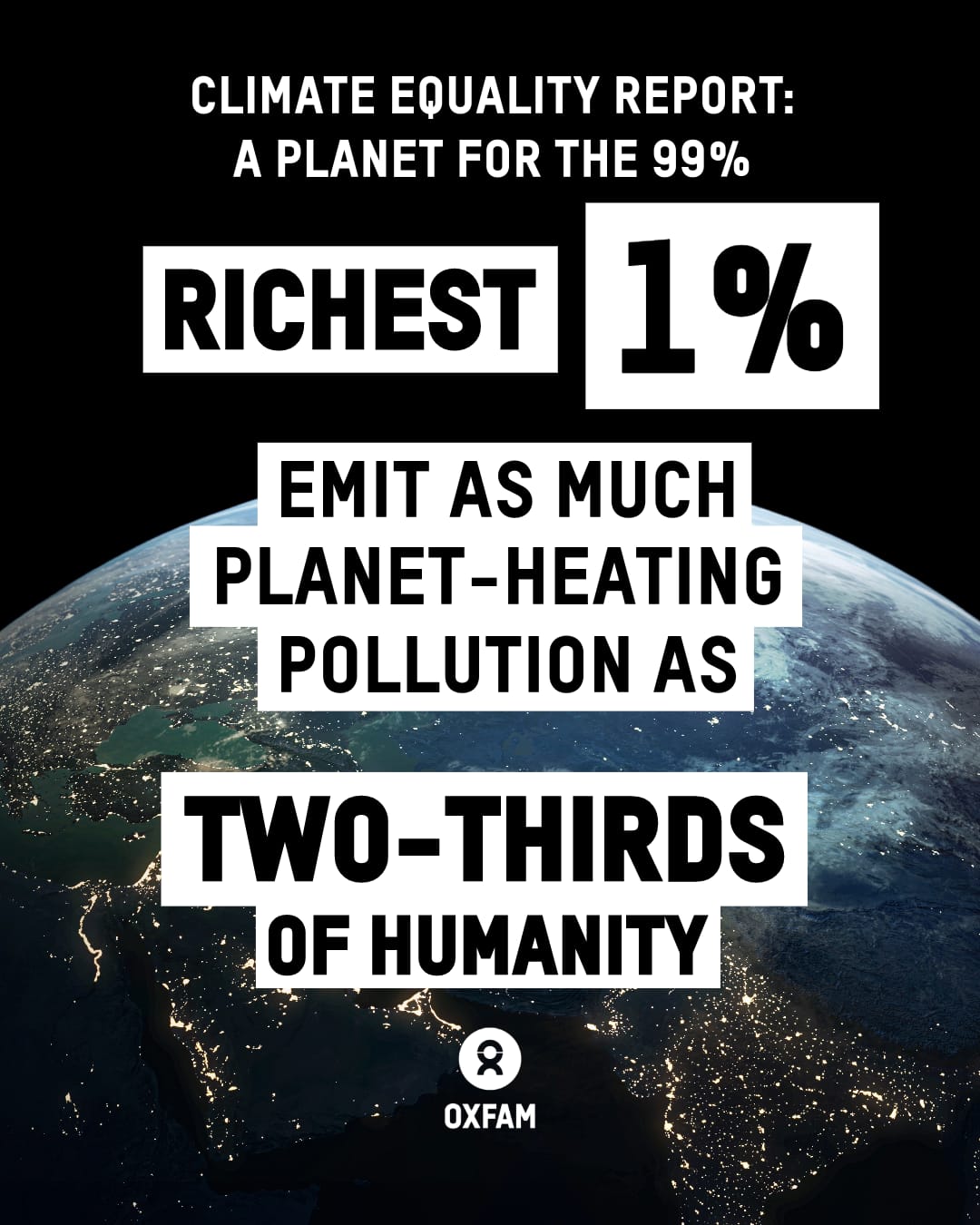
Oxfam indicates world wealthiest one percent emits the same carbon as the poorest two-thirds. Picture Courtesy: Oxfam.
(The Post News) – According to a recent study, the carbon emissions of the wealthiest 1% of people in the world are now equivalent to those of the poorest two-thirds. With the climate crisis deepening, growing calls are being made for policies that target the highly polluting activities of the super rich.
Oxfam and US-based researchers revealed in recent studies that 12 billionaires produce close to 17 million metric tons of greenhouse gases annually. For example, it has been found that flying by private jet releases 10 times more carbon per passenger than a commercial flight.
Oxfam Denmark executive director Lars Koch says governments have a simple choice of either letting the super-rich fill their pockets while people struggle to climate finance promises go unmet, or they can put the needs of the many before the luxury of the few and tax rich.
An assistant at Cambridge Zero Fellow at the University of Cambridge, Dr. Ramit Debnath, made a remark stating there’s a huge contrast between billionaires traveling by jet while the rest drink with soggy paper straws; one of these behaviors has a significant influence on an individual’s carbon footprint, and the other doesn’t.
The matter had gained traction among policymakers, with several countries having proposed taxes on billionaire wealth to address climate change, with G20 finance leaders recently agreeing to a wealth tax on the super-rich.
If implemented, the tax could generate around R4.46 trillion for tackling urgent global issues like climate change and poverty. However, disagreements persist over the viability of such a tax, including how it would be implemented and who would oversee its enforcement.
Natalie Shortfall, Oxfam GB’s climate justice policy adviser, had emphasized the need for decisive action, stating that further steps to better tax extreme wealth are needed to accelerate climate action and fight inequality, with increasing taxes on highly polluting luxuries like jets and super yachts being an obvious place to start.
Copenhagen Business School and the University of Cambridge conducted an international survey and revealed that people consistently underestimate the carbon footprint of the wealthy.
Dr. Kristian Steensen Nielsen from Copenhagen Business School said poorer people have more immediate concerns, such as paying rent or supporting their families, but across all income groups, there’s a desire for real solutions to the climate crisis. Critics have argued that many existing climate policies disproportionately affect lower-income people, while the wealthy continue to evade significant lifestyle changes.
Nielsen determined that those with the largest carbon footprints hold the most responsibility for modifying and reducing their footprints.







